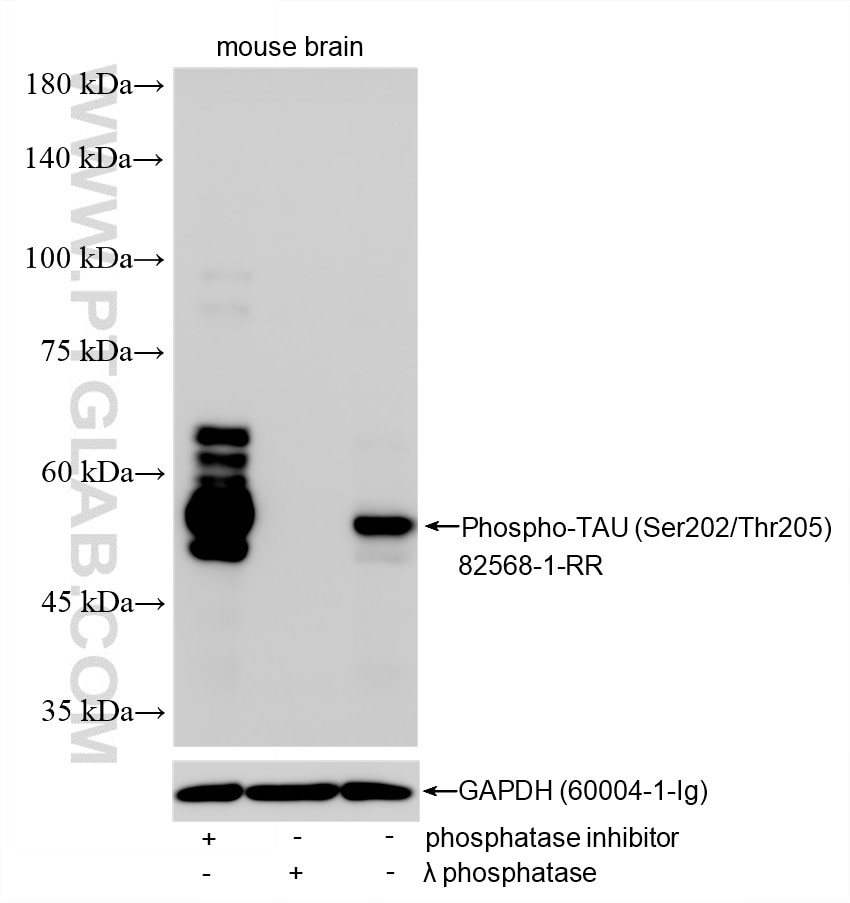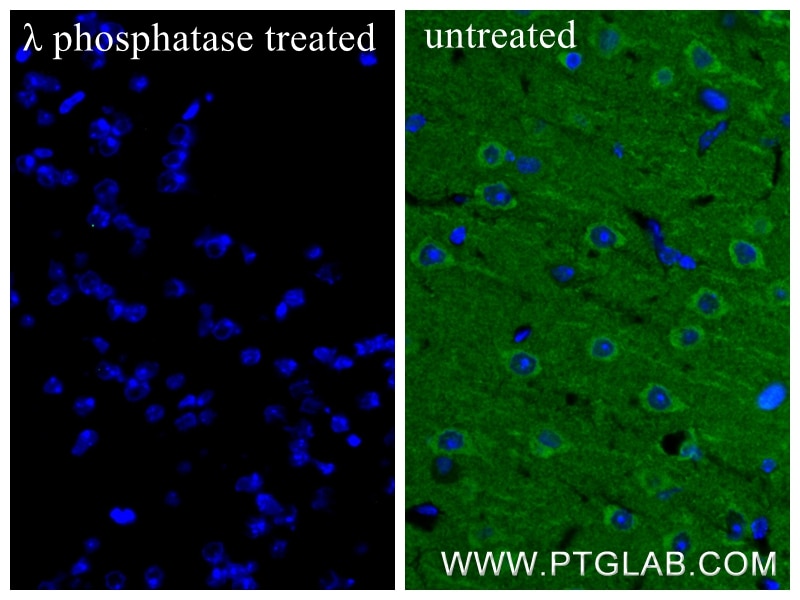Validation Data Gallery
Tested Applications
Recommended dilution
| Application | Dilution |
|---|---|
| It is recommended that this reagent should be titrated in each testing system to obtain optimal results. | |
Product Information
82568-1-PBS targets Phospho-TAU (Ser202/Thr205) in WB, IF-P, Indirect ELISA applications and shows reactivity with human, mouse samples.
| Tested Reactivity | human, mouse |
| Host / Isotype | Rabbit / IgG |
| Class | Recombinant |
| Type | Antibody |
| Immunogen |
Peptide 相同性解析による交差性が予測される生物種 |
| Full Name | microtubule-associated protein tau |
| Calculated molecular weight | 37-46, 79-81 kDa |
| Observed molecular weight | 45-55 kDa |
| GenBank accession number | BC000558 |
| Gene Symbol | TAU |
| Gene ID (NCBI) | 4137 |
| Conjugate | Unconjugated |
| Form | |
| Form | Liquid |
| Purification Method | Protein A purification |
| UNIPROT ID | P10636 |
| Storage Buffer | PBS only{{ptg:BufferTemp}}7.3 |
| Storage Conditions | Store at -80°C. |
Background Information
Tau (tubulin-associated unit) is a microtubule-associated protein (also known as MAPT), expressed mainly in neurons of the central nervous system. Its primary function is to modulate microtubule dynamics for maintaining axonal cytoskeleton. The Tau protein has six isoforms produced from a single gene through alternative RNA splicing. Isoforms differ in number of inserts at the N-terminal half and the number of repeats at the C-terminal half (3 repeat-3R; 4 repeat-4R). Tau is hyperphosphorylated during aging and in age-related neurodegenerative diseases such as Alzheimer's disease (AD) and fronto-temporal dementia. Hyperphosphorylation of Tau leads to the formation of neurofibrillary tangles (NFT) in the neurons and glia cells, which is one of the hallmarks of AD.


